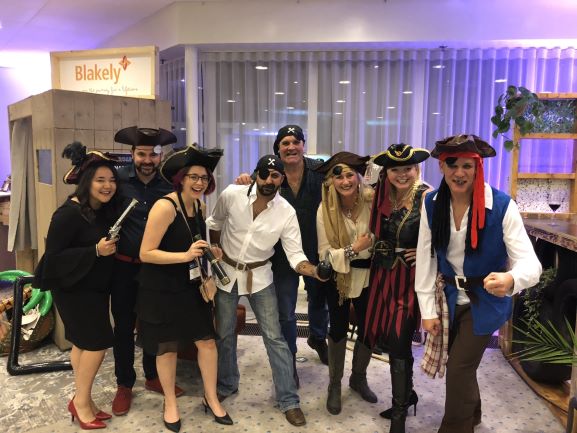Our 2018 IFC Report: Insights from Meg Dawes

The 2018 International Fundraising Congress (#IFC2018) was held in mid-October in Noordwijkerhout, Holland. With over 1,000 registrants from more than 65 countries, this year’s IFC conference, themed “Together We Can,” was a filled with thought-provoking sessions and collaborative “Masterclasses.” During the IFC, which is recognized as the world’s leading gathering of fundraisers and changemakers, participants come together to explore themes and technologies that will advance social change throughout the world.
The repetitive storyline throughout the conference this year was that of disruption, and the idea that change in our world—change for the better, change to advance the causes of those less fortunate, change to advance the causes that seek to save our planet, and change to advance the causes that seek to preserve our species—can only come about if we are willing to be disruptive: individually, organizationally, and globally.
I’d like to share with you some information from one of the Masterclasses I attended that I found to be particularly fascinating, “Leadership in a Disruptive World,” which was taught by Burkhard Gnarig of TranformationLead. The session’s introduction cleverly began with a discussion about tackling disruption, but it soon became clear that its true purpose was how to teach us as leaders to encourage and embrace disruption in our organization, and that true transformative change can only come about through this process. “The key to positive disruption is learning to navigate the space between resistance to change and adaptation,” said Gnarig.
To do this, he said we must embrace the acronym ACT BIG:
• Alliances: We cannot act on our own if we are going to amass the power needed in our organizations for transformative change
• Culture: We must embrace an entrepreneurial spirit that encourages change
• Transparency: Effectively creates more accountability; when it is lacking, it creates fear
• Business Models: Diversify current models; adapt to new models
• Identity: Answer the question “Who are we as an organization?” with the goal in mind to end the paternalistic and patronizing approach to establishing your identity
• Government: Most organizations are over-governed and under-managed—make it a priority to change this way of operating
My biggest takeaways from this compelling class are this: As successful leaders, we need to strive to live out this “transformation” every day—not just speak about it, but live it from the inside out. We must start by defining our own mission and how we go about continuing to achieve it. We must share ownership and lead by vision, not out of necessity. If we embrace risk and are willing to investigate the future of our organizations, we can lead through and be a part of our organization’s disruptions.
I hope you’ll give these points some thought and that you find them as interesting as I do. And if you ever have the opportunity to attend the IFC, I highly recommend it. Now go forth and disrupt!

Meg Dawes
Vice President, Integrated Marketing
